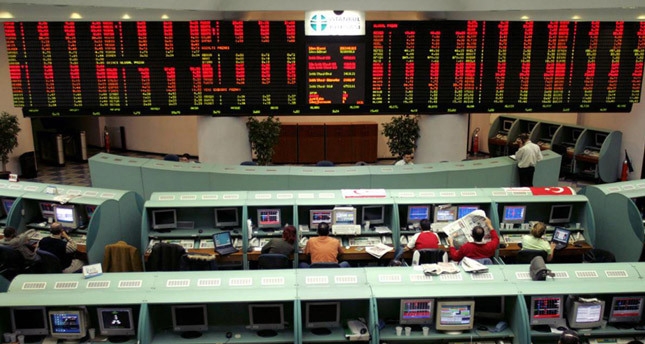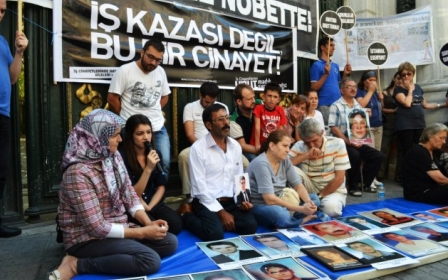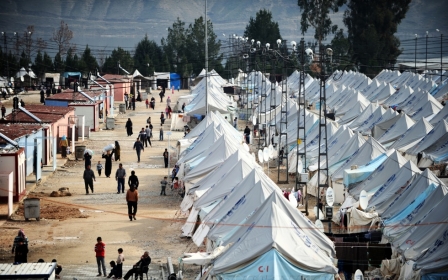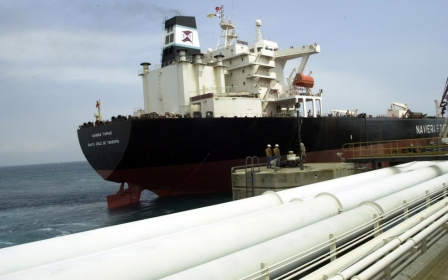Economic wobbles could be stumbling-block for Erdogan presidency

Turkish prime minister Recep Tayyip Erdogan, appears all but assured of winning upcoming presidential polls. However, he could find himself in charge of a far more fragile economy than in the last decade of his rule.
Analysts say the strongman prime minister is jeopardising the economy’s long-term health by picking a fight with Turkey’s nominally independent central bank and pushing it towards a looser monetary policy at a time of stubbornly high inflation.
Meanwhile, instability in neighbouring Iraq, where swathes of territory have been taken over by Sunni militants, risks depriving Turkey of a key export market.
Erdogan is credited with turning around Turkey's economy during over a decade of leadership. With growth rates of 8.9 percent in 2010, one of the world's highest, Turkey's economic success has become a political trump card that Erdogan hopes will help him win presidential polls on 10 August.
He wants Turkey to be among the globe's top 10 economies by 2023, when it will celebrate the 100th anniversary of becoming a modern republic.
"If elected, we will make Turkey fly in every sense," Erdogan said in a speech last week when he announced his presidential bid.
But the economy has begun showing signs of fragility over the past year as investors have turned against many of the world's emerging markets.
'Markets against Turkey'
Erdogan's government has faced unprecedented domestic challenges in the past year, including a vast corruption scandal and mass street protests that have frequently snowballed into violent clashes with police.
Meanwhile, he has waged an all-out war against the central bank, pressing for a sharp rate cut to boost growth ahead of this year's presidential vote and parliamentary polls in 2015.
A senior official from the ruling AKP party, Numan Kurtulmus, fuelled controversy when he said that Ankara must seek the "domination" of the central bank as it did the once-powerful army.
Andy Birch, senior economist at IHS Global Insight, said the central bank's independence would be a "major concern" under an Erdogan presidency.
"The markets will decisively turn against Turkey - exchange rate losses, deteriorating yields, net outflows of portfolio investment - should these threats against the central bank come to fruition," he told AFP.
"Already, worries of political domination of monetary policy contributed to the end-2013 and early-2014 market instability."
To Erdogan's dismay, the bank hiked interest rates at the beginning of the year after the value of the Turkish lira plummeted in response to a corruption scandal in the government and a global shift of funds out of emerging markets.
The bank has so far withstood pressure from Erdogan's government to cut interest rates more aggressively, which analysts say is one reason markets have held relatively steady in recent months.
Last month it shaved 75 basis points off its main interest rate, following up on a 50 basis point cut in May, taking it to 8.75 percent.
These moves were seen as walking a fine line between retaining market credibility and placating Erdogan.
But it still fell short of meeting the hopes of the government, which wants rates cut back down to 4.5 percent, piling additional pressure on the bank ahead of its next 17 July meeting.
Annual inflation dropped to 9.16 percent in June from a two-year high of 9.66 percent in May.
The central bank has revised its forecast for the end of 2014 from 6.6 percent to 7.6 percent.
Iraq crisis hits exports
The rise of a radical militant threat across Turkey's border in Iraq is also setting off alarm bells among investors.
Moody's rating agency warned this week that the conflict in Iraq could hit almost 15 percent of the country's exports, equivalent to 3 percent of its entire gross domestic product.
"If the Iraq conflict continues for a prolonged period and also spreads to [Iraqi Kurdistan], it would have a material effect on Turkish exports... and would slow the country's economic growth," Moody's said in a statement.
As many as 550 companies had already halted imports to Iraq since the start of a lightning offensive by Islamic State (IS) in June, the head of the Turkish-Iraqi Business Council, Serif Ercument Aksoy, said last month.
Iraq was the second-largest buyer of Turkish goods last year, accounting for 8 percent of exports.
"Exporters are bearing the brunt of the crisis next door and Turkey must find alternative routes because trade routes to Syria and now to Iraq are blocked," Nihat Ali Ozcan of the Ankara-based TEPAV think-tank told AFP.
New MEE newsletter: Jerusalem Dispatch
Sign up to get the latest insights and analysis on Israel-Palestine, alongside Turkey Unpacked and other MEE newsletters
Middle East Eye delivers independent and unrivalled coverage and analysis of the Middle East, North Africa and beyond. To learn more about republishing this content and the associated fees, please fill out this form. More about MEE can be found here.




